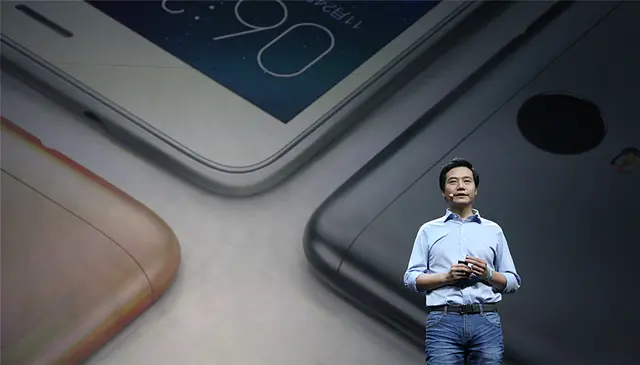Chinese smartphone maker Xiaomi launched its new smartphone Mi5 Wednesday, after more than a year of attempting to maintain its dominance in the world's largest smartphone market with budget devices.
The Mi5, which is powered by a Qualcomm Snapdragon 820 processor, remains true to the brand's pricing strategy, with the basic version available for 1,999 yuan (around 306 U.S. dollars), just a fraction of the price of an iPhone 6s.
It also released an updated version of the Mi4, which will hit the shelves priced at 1,699 yuan. The new handsets will be available from March 1.
The Mi 5 comes more than a year after the release of Mi Note, and almost 18 months since the previous version. The Beijing-based smartphone maker continued to release budget smartphones under its RedMi lines to retain its market share in China.
Xiaomi said it will produce more Mi 5 and Mi 4S units and make them available at multiple online and offline distributors.
It said the new smartphones can be purchased at 2,000 brick-and-mortar stores of domestic retailer Suning, online marketplaces JD.com and Alibaba's Tmall, as well as its own website and stores.
Xiaomi undershot its 2015 smartphone sales target of 80 million units but CEO Lei Jun said during the product launch Wednesday that the company remained the number one phone brand of choice in China last year.
However, the gap between Xiaomi and its closest domestic rival Huawei is closing, with the difference in market share kept within 1.5 percentage points.
Huawei saw its smartphone sales worldwide surging 52 percent last year, exceeding the 100 million unit threshold, data compiled by Gartner shows.
Huawei also managed to upgrade its brand with its Mate series of smartphones. Its latest flagship smartphone Mate 8, released in December, costs 2,999 yuan. Its most premium version, coupled with a smart watch, can be bought for 6,888 yuan, placing it in the same price range as Apple and Samsung's flagship smartphones.
Analysts say Huawei's hardware choices make it better positioned to compete globally than other domestic rivals.
Huawei's high-end smartphones are mostly powered by its proprietary chip HiSilicon. Proprietary hardware is an important element that influences whether Chinese smartphones can successfully enter overseas markets as they help reduce costs and avoid potential patent lawsuits.
Xiaomi is also reported to be developing its own smartphone processor and could use it in future devices.
Lei also said during Wednesday's product launch that Xiaomi's latest smartphone has near-field-communication technology, a feature used by Apple for its Apple Pay service.
He added Xiaomi is working on software to eventually enable NFC payment on its smartphone. Lei said the company will be in talks with banks to allow users to buy bus tickets in China's top-tier cities soon.
Xiaomi is also reported to have acquired a third-party payment firm in a bid to launch its own payment service. The company refused to comment when asked by Xinhua about the acquisition and the chip development on Wednesday.
The company has, however, revealed its ambition to build its own financial services platform. It has already launched an app offering wealth management products and loans.
Aside from smartphones, Xiaomi also produces tablets, routers, televisions and set-top boxes, as well as air and water purifiers, scooters and wristband as part of its smart-home line. Enditem
 简体中文
简体中文

